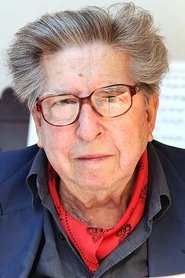
Henri Dutilleux
Date of Birth:
Jan 22, 1916
Place of Birth:
Angers, Maine-et-Loire, France
Henri Paul Julien Dutilleux (22 January 1916 – 22 May 2013) was a French composer of late 20th-century classical music. Among the leading French composers of his time, his work was rooted in the Impressionistic style of Debussy and Ravel, but in an idiosyncratic, individual style. Among his best known works are his early Flute Sonatine and Piano Sonata; concertos for cello, Tout un monde lointain... ("A whole distant world") and violin, L'arbre des songes ("The tree of dreams"); a string quartet known as Ainsi la nuit ("Thus the night"); and two symphonies: No. 1 (1951) and No. 2 Le Double (1959). Works were commissioned from him by such major artists as Charles Munch, George Szell, Mstislav Rostropovich, the Juilliard String Quartet, Isaac Stern, Paul Sacher, Anne-Sophie Mutter, Simon Rattle, Renée Fleming, and Seiji Ozawa. In addition to composing, he worked as the Head of Music Production for Radio France for 18 years. He also taught at the École Normale de Musique de Paris and at the Conservatoire National Supérieur de Musique, and was twice composer in residence at the Tanglewood Music Center in Lenox, Massachusetts. Among Dutilleux's many awards and honours were the Grand Prix de Rome (1938) and the Ernst von Siemens Music Prize (2005). When describing him, the music critic Paul Griffiths wrote that "Mr. Dutilleux’s position in French music was proudly solitary. Between Olivier Messiaen and Pierre Boulez in age, he was little affected by either, though he took an interest in their work. But his voice, marked by sensuously handled harmony and color, was his own." Henri Dutilleux was born on 22 January 1916 in Angers, Maine-et-Loire. He was the great-grandson of the painter Constant Dutilleux and grandson of the composer Julien Koszul. He was also a cousin of the mathematician Jean-Louis Koszul. He studied harmony, counterpoint, and piano with Victor Gallois at the Douai Conservatoire before leaving for the Conservatoire de Paris. There, between 1933 and 1938, he attended the classes of Jean and Noël Gallon (harmony and counterpoint, in which he won joint first prize with the cellist Paul Tortelier), Henri Büsser (composition) and Maurice Emmanuel (history of music). Dutilleux won the Prix de Rome in 1938 for his cantata L'anneau du roi but did not complete his entire residency in Rome due to the outbreak of World War II. He worked for a year as a medical orderly in the army and returned to Paris in 1940, where he worked as a pianist, arranger and music teacher. In 1942, he conducted the choir of the Paris Opera. Dutilleux worked as Head of Music Production for Radio France from 1945 to 1963. He served as professor of composition at the École Normale de Musique de Paris from 1961 to 1970. He was appointed to the staff of the Conservatoire National Supérieur de Musique in 1970 and was composer-in-residence at Tanglewood in 1995 and 1998. His students included Gérard Grisey, Francis Bayer, Alain Gagnon, Jacques Hétu, and Kenneth Hesketh. Invited by Walter Fink, in 2006 he was the 16th composer featured in the Rheingau Musik Festival's annual Komponistenporträt. ... Source: Article "Henri Dutilleux" from Wikipedia in English, licensed under CC-BY-SA 3.0.












Comments